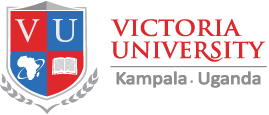Quick Facts
Credential
Bachelor's Degree
Delivery Options:
Both On-Campus and Online - Some of your Classes will be in-person, on campus and some will be done online.
Duration: Three Years
With a typical full-time course load, this programme will take Three Years to complete.
Language of instruction
english
Admission Requirements
ADMISSION REQUIREMENTS
· A-level Entrants Scheme: Uganda Advanced Certificate of Education (UACE) or its equivalent with two principal passes in the teaching subjects
· Mature Age Scheme: Mature Age Entrance Examinations Certificate in the teaching Subjects, awarded to a person aged at least 22 years and who has passed with at least 50% marks. The Certificate shall be valid for no more than two years. The mature age entry examinations center must have been authorized by NCHE.
· Diploma Scheme: Diplomas of Early Childhood Education, other fields like Diploma in Social Work and administration, Diploma of Arts in Education and Diploma of Science in Education and are to upgrade to the BECE course.
· Higher Education Certificate from a recognized university
Credit Accumulation, Transfers and Exemptions
Benchmark Standard
Credit transfers and exemptions shall be accepted for purposes of student mobility and recognition of prior learning. Students will be allowed to transfer credits following the university policy on credit transfer and exemptions.
Programme Modalities
The programme shall be conducted by course work and examinations on Modular basis, each month a student does one or two modules, where a student does both courseworks and examinations.
A student shall take professional studies covering components of Educational Foundations, Curriculum Studies, Introduction to Educational Management and Administration, Introduction to Educational Research Methodology, Introduction to Guidance and counseling in schools, and Educational Measurement and Evaluation to mention but a few in addition to;
What you will Learn
A Bachelor's degree in Early Childhood Education prepares individuals to work with young children from infancy through early elementary grades. The program emphasizes the development of skills, knowledge, and attitudes necessary for working with young children and their families. Here are some key areas and competencies that you typically learn through such a degree:
1. Child Development
Understanding the physical, cognitive, emotional, and social development of children from birth through age eight.
Recognizing the milestones in a child's developmental process and how to support their growth at each stage.
2. Curriculum Development and Instruction
Designing, implementing, and evaluating developmentally appropriate curriculum for young children.
Incorporating play, discovery, and structured learning into the curriculum.
3. Classroom Management
Strategies for creating a safe, inclusive, and supportive learning environment.
Techniques for managing group dynamics and promoting positive behavior.
4. Family and Community Engagement
Building relationships with families and understanding their role in children's development and learning.
Collaborating with community resources to support the well-being and education of children.
5. Assessment and Evaluation
Methods for assessing children’s development and learning to inform instructional practices.
Understanding and using formative and summative assessments appropriately.
6. Special Education and Inclusion
Strategies for including children with diverse needs and abilities in regular classroom settings.
Understanding legal and ethical requirements for special education.
7. Professionalism and Ethics
Developing a professional identity as an early childhood educator, including ethical conduct and continuous professional development.
Understanding the historical, social, and political contexts of early childhood education.
8. Health, Safety, and Nutrition
Ensuring the health and safety of children in educational settings.
Understanding the role of nutrition in child development and learning.
9. Technology in Education
Incorporating technology to enhance learning and development in early childhood settings.
Using digital tools and resources responsibly and effectively.
10. Practical Experience
Fieldwork and practicum experiences in various early childhood settings to apply theoretical knowledge in real-world situations.
Observing, interacting with, and teaching young children under the supervision of experienced educators.
Career Opportunities
People with an early childhood education degree from Victoria University often pursue diverse careers in childcare centers, schools, and other settings:
Preschool Teacher: Organize educational activities for young children, prepare lessons, and track student progress.
Special Education Teacher: Work with children under 8 with diagnosed disabilities, providing instruction and support.
Teacher Assistant: Assist classroom teachers by preparing materials and tutoring students.
Outside of traditional schools, careers include:
Childcare Center Director: Manage staff and ensure the center meets regulatory standards.
Childcare Worker: Supervise children in various settings, such as neighborhood facilities or corporate childcare centers.
Nanny: Provide full-time care for children in a family's home, including meal preparation and organizing activities.
Victoria University's early childhood education programme equips graduates for success in these roles.
Tuition & Fees
The tuition and fee amounts are estimates based on current academic year's rates. For financial planning purposes, please use these totals as an approximate estimate of your costs. Actual fees may vary by term and enrolment activities.
Download
